Memoirs of General de Caulaincourt - The Retreat From Moscow
Nonfiction, History, Spain & Portugal, France, Military| Author: | Général de Division Armand Augustin Louis de Caulaincourt, Duc de Vincence | ISBN: | 9781908692696 |
| Publisher: | Wagram Press | Publication: | August 17, 2011 |
| Imprint: | Wagram Press | Language: | English |
| Author: | Général de Division Armand Augustin Louis de Caulaincourt, Duc de Vincence |
| ISBN: | 9781908692696 |
| Publisher: | Wagram Press |
| Publication: | August 17, 2011 |
| Imprint: | Wagram Press |
| Language: | English |
Recognized as the most important Napoleonic source discovered in the last hundred years, the three volume memoirs of Napoleon’s Master of Horse are also exceptionally well written, and vivdly protray Napoleon during his disastrous last years of power. The memoirs of one Napoleon’s most senior ministers and closest advisors, with whom he was often very candid, remained unpublished for over a century since they were left by Armand de Caulaincourt, unearthed with by Jean Hanoteau who was eminently familiar with the period, and on part of the French ministry of War’s historical section. The notes and annotations of Capitaine Hanoteau illuminate the text for both the enthusiast of the period and the general reader.
The title of “Master of Horse’ perhaps in modern light does not quite reflect the position that Caulaincourt held within Napoleon’s inner circle. He was responsible for all of the transportation for Napoleon’s headquarters, the messengers that provided the eyes and ears of the campaign and furthermore he was ambassador to Russia for a number of years before hostilities commenced. A highly decorated cavalry officer before his tenure as ambassador, his advice should have been invaluable to the Emperor in assessing the huge undertaking of attacking the Russian empire, and Caulaincourt along with many others were ignored as Napoleon embarked his last invasion. Caulaincourt had much reason to be bitter as the Emperor was quite cruel to him personally, but his narrative maintains balance and although critical of Napoleon’s decisions he does not descend into recriminations.
Caulaincourt’s second volume of the memoirs falls into three parts; the volume opens with the decision to retreat from the untenable position in the charred ruins of Moscow, hardship and danger abound on the epic and deadly retreat of the Grande Armée. Caulaincourt does not pull his punches in his descriptions of the frost-bitten and frozen men who fall under Napoleon’s eagles as they lurch toward Germany, his description of the crossing of the Beresina is amongst the best we have. Chosen as one of the few members of the Emperor’s suite to accompany him to Paris as Napoleon decides to flee the remnant of his army and repair the damage to his position; what follows along with the description of the journey is a stream of consciousness from the lips of Napoleon himself. As they travel Napoleon, muses, discusses and opines on the most diverse topics, his generals, this situation in Spain, the French people, the finances of the state, the capitulation of Baylen, the value of religion to France, the other states of Europe. Invaluable and candid, the portrait of the Emperor is the closest to his true character as can be seen from such a distance of time. The third section focuses on his retreat to the Tuileries and Napoleon’s energetic actions to reform a new army.
Not to be confused with the Charlotte de Sor penned “Recollections of Caulaincourt”, which are apocryphal and according to Tulard of little or no value. This edition is superior to the translated and heavily editted Libraire edition.
Author – Armand Augustin Louis, marquis de Caulaincourt, Duc de Vincence (9th December 1773– 19th February 1827)
Recognized as the most important Napoleonic source discovered in the last hundred years, the three volume memoirs of Napoleon’s Master of Horse are also exceptionally well written, and vivdly protray Napoleon during his disastrous last years of power. The memoirs of one Napoleon’s most senior ministers and closest advisors, with whom he was often very candid, remained unpublished for over a century since they were left by Armand de Caulaincourt, unearthed with by Jean Hanoteau who was eminently familiar with the period, and on part of the French ministry of War’s historical section. The notes and annotations of Capitaine Hanoteau illuminate the text for both the enthusiast of the period and the general reader.
The title of “Master of Horse’ perhaps in modern light does not quite reflect the position that Caulaincourt held within Napoleon’s inner circle. He was responsible for all of the transportation for Napoleon’s headquarters, the messengers that provided the eyes and ears of the campaign and furthermore he was ambassador to Russia for a number of years before hostilities commenced. A highly decorated cavalry officer before his tenure as ambassador, his advice should have been invaluable to the Emperor in assessing the huge undertaking of attacking the Russian empire, and Caulaincourt along with many others were ignored as Napoleon embarked his last invasion. Caulaincourt had much reason to be bitter as the Emperor was quite cruel to him personally, but his narrative maintains balance and although critical of Napoleon’s decisions he does not descend into recriminations.
Caulaincourt’s second volume of the memoirs falls into three parts; the volume opens with the decision to retreat from the untenable position in the charred ruins of Moscow, hardship and danger abound on the epic and deadly retreat of the Grande Armée. Caulaincourt does not pull his punches in his descriptions of the frost-bitten and frozen men who fall under Napoleon’s eagles as they lurch toward Germany, his description of the crossing of the Beresina is amongst the best we have. Chosen as one of the few members of the Emperor’s suite to accompany him to Paris as Napoleon decides to flee the remnant of his army and repair the damage to his position; what follows along with the description of the journey is a stream of consciousness from the lips of Napoleon himself. As they travel Napoleon, muses, discusses and opines on the most diverse topics, his generals, this situation in Spain, the French people, the finances of the state, the capitulation of Baylen, the value of religion to France, the other states of Europe. Invaluable and candid, the portrait of the Emperor is the closest to his true character as can be seen from such a distance of time. The third section focuses on his retreat to the Tuileries and Napoleon’s energetic actions to reform a new army.
Not to be confused with the Charlotte de Sor penned “Recollections of Caulaincourt”, which are apocryphal and according to Tulard of little or no value. This edition is superior to the translated and heavily editted Libraire edition.
Author – Armand Augustin Louis, marquis de Caulaincourt, Duc de Vincence (9th December 1773– 19th February 1827)


![Cover of the book Cannae [Illustrated Edition] by Général de Division Armand Augustin Louis de Caulaincourt, Duc de Vincence](https://www.kuoky.com/images/2014/june/300x300/9781782892373-z7Qh_300x.jpg)
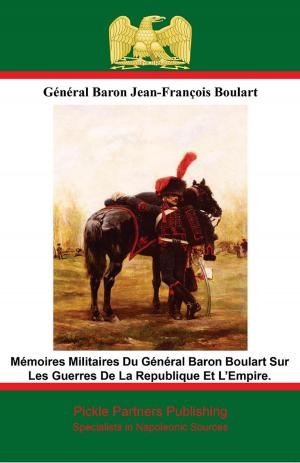
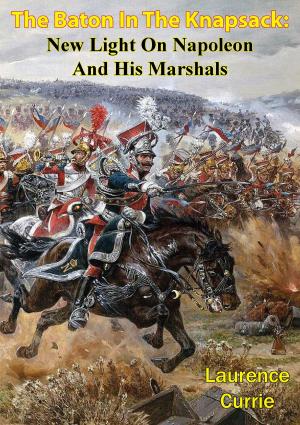
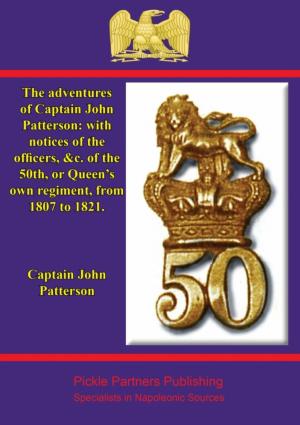


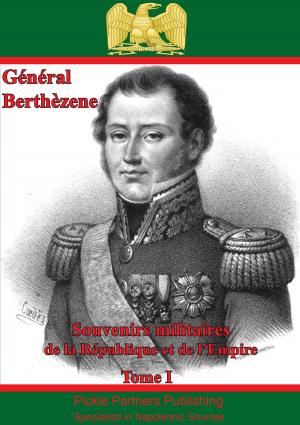


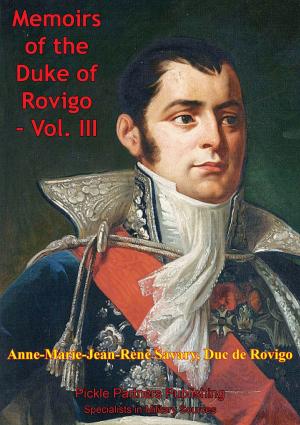
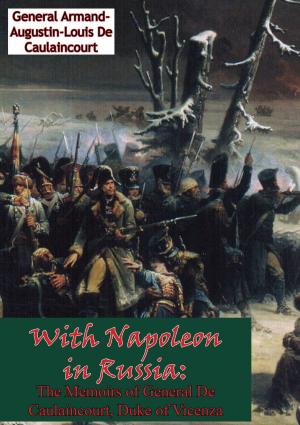

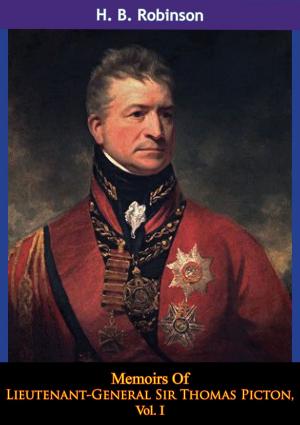
![Cover of the book History Of The Consulate And The Empire Of France Under Napoleon Vol. VIII [Illustrated Edition] by Général de Division Armand Augustin Louis de Caulaincourt, Duc de Vincence](https://www.kuoky.com/images/2016/march/300x300/9781786259158-mnIb_300x.jpg)